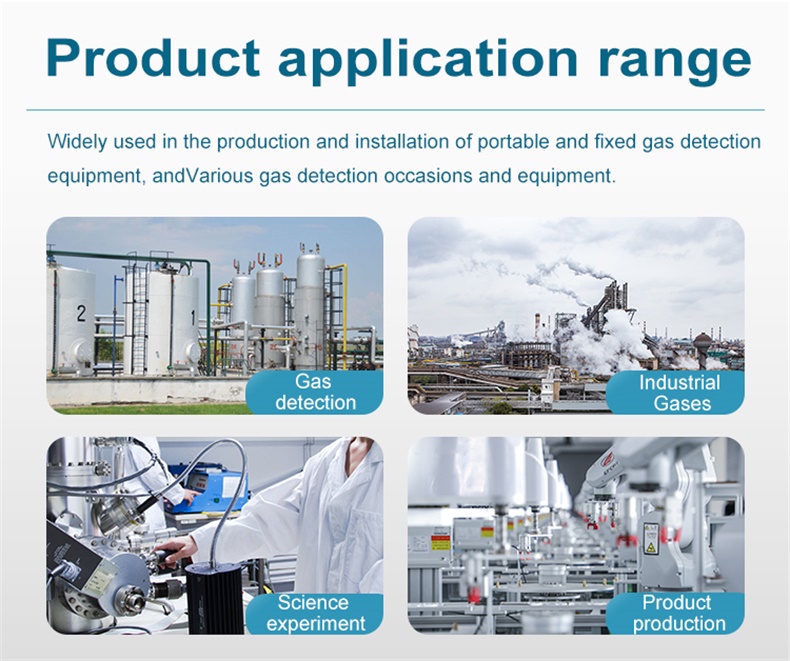Electrochemical Sensors:

Electrochemical sensor apply gas detection with excellent sensitivity, selectivity and low power consumption. Electrochemical sensors work by performing an electrochemical reaction at the interface between an electrode and a gas. In the case of carbon dioxide detection, the electrochemical sensor usually consists of a working electrode, a reference electrode and an electrolyte. When exposed to carbon dioxide, a chemical reaction occurs on the electrode surface, producing an electrical signal that can be measured and quantified to determine carbon dioxide concentrations.
Advantages of Electrochemical CO2 Sensors:

a. High Sensitivity:
Electrochemical sensor offer high sensitivity towards specific gases, including CO2. They can detect low concentrations of CO2 with great accuracy and reliability.
b. Real-time Monitoring:
These sensors provide real-time measurements, allowing for continuous monitoring of CO2 levels in various environments.
c. Miniaturization:
Electrochemical sensors can be miniaturized, making them compact, portable, and suitable for use in various applications, such as automotive, indoor air quality monitoring, and environmental monitoring.
Applications of Electrochemical CO2 Sensors:
a. Indoor Air Quality Monitoring
Indoor Air Quality Monitoring are extensively used in buildings and workplaces to monitor indoor air quality. High levels of CO2 can indicate poor ventilation, leading to discomfort, fatigue, and decreased productivity.

b. Automotive Industry:
Electrochemical CO2 sensor are integrated into vehicles to ensure efficient combustion and reduce CO2 emissions. They help optimize fuel consumption and control exhaust gas recirculation to minimize environmental impact.
c. Greenhouses and Environmental Monitoring:
Electrochemical sensor play a crucial role in maintaining optimum CO2 levels in greenhouses for enhanced plant growth. They are also used in environmental monitoring stations to measure CO2 levels in the atmosphere.
Future Prospects:
As technology advances, electrochemical sensor are expected to become more efficient, sensitive, and cost-effective. Integration of these sensors into Internet of Things (IoT) platforms and smart devices will enable real-time data collection and analysis for better CO2 management. Moreover, ongoing research to develop novel materials and improve electrode designs will further enhance the performance of electrochemical sensor.
Conclusion:
Efficient detection of CO2 using electrochemical sensors provides a powerful tool in mitigating the effects of climate change. These sensors offer high sensitivity, real-time monitoring, and diverse applications across various sectors. As we move towards a greener and more sustainable future, the continuous development and utilization of electrochemical CO2 sensors will play a crucial role in monitoring, controlling, and reducing CO2 emissions for the well-being of our planet.